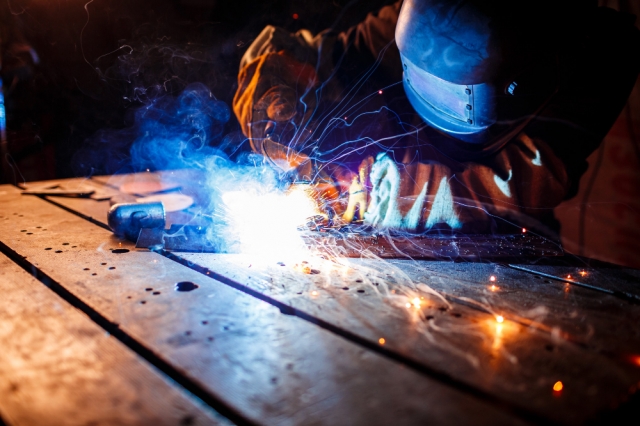Laser welding isn’t just flashy tech—it’s a clever, eco-conscious way to bring DIY projects to life. Think strong joins, less energy use, and a cleaner workshop. Whether you're crafting custom furniture or delicate jewelry, a laser welder gives you precision without the waste.
Introduction
If you're someone who loves making things with your own hands—and cares about the planet—laser welding might just be your new favorite tool. It’s cleaner, faster, and uses less power than traditional welding. Plus, it creates durable results that last.
A laser welder focuses energy right where it's needed, which means less material melted away and fewer fumes rising into the air. That’s good for your wallet and great for the environment.
Benefits of Laser Welding
Here’s why more DIY enthusiasts are adding laser welders to their toolkit:
- Minimal Waste: Thanks to pinpoint laser beams, you don’t end up melting more metal or plastic than necessary—so there’s less scrap.
- Energy Savings: You’ll burn about 30% less power compared to conventional welders. That helps reduce your electric bill over time.
- Cleaner Air: No flux, fewer fumes, and fewer byproducts. Your workspace—and your lungs—will notice.
- Versatility: Metal, plastic, ceramics—laser welding works with it all. That means more creative freedom.
- Long-Term ROI: The upfront cost might give you pause, but with savings in energy and materials, many find it pays for itself.
If you're aiming for thoughtful, sustainable crafting, laser welding is worth exploring.
Cleaner Process & Lower Emissions
One of the big perks? The process is straight-up cleaner. Here's why:
- Less Smoke: No chemical flux or excess material means fewer fumes polluting the air.
- Easy Cleanup: You won’t be sweeping up metal shavings or clogged filters every time—so more time spent making, less spent tidying.
Still on the fence? Consider how a laser welder helps you craft and clean with care.
Energy Efficiency & Cost Savings
Saving energy equals saving money—plain and simple:
|
Metric |
Traditional Welding |
Laser Welding |
|
Energy |
High |
~30% lower |
|
Material Waste |
Wasteful |
Minimal |
|
Emissions |
Heavily polluting |
Much cleaner |
|
Overall Cost |
Ongoing expenses |
Lower lifecycle costs |
For casual makers or home shops, that adds up quickly.
Precision Reduces Material Waste
Laser welders shine when it comes to precision:
- Minimal Heat Spread: You’re only heating the point of contact, so surrounding materials stay cool and intact.
- Less Filler Needed: You won’t waste materials filling in gaps—your weld is solid where it needs to be.
- Tighter Projects: Better control means fewer mistakes and cleaner work.
In short: precision, fewer re-dos, fewer scraps.
Versatility & DIY-Friendly Features
Laser welders aren’t just precise—they’re adjustable, too:
|
Feature |
Details |
|
Power Range |
20 – 200 W—use what suits your project |
|
Adjustable Settings |
Customize heat and speed precisely |
|
Material Compatibility |
Metals, plastics, even ceramics |
|
Efficiency |
~30% less energy usage |
Modern models often include easy-to-use controls and smart features, letting even weekend hobbyists work like pros.
Sustainability in Action
Using a laser welder isn’t just clever—it’s a nod to sustainability. Here’s how it plays out:
- Reduced Waste: Targeted welding means you use only what you need.
- Lower Energy Use: You're powering your projects more efficiently than ever before.
- Fewer Emissions: Cleaner air, for both you and the planet.
- Wider Project Range: Whether it's automotive touch-ups or home décor, one tool, many possibilities.
It's a solid step toward building smarter, not harder.
Safety & Environmental Impact
Laser welders are cleaner, but also safer with proper use:
- Fewer Sparks: Less chance of accidental fires or burns.
- Safer Workspaces: Less smoke equals cleaner air and a healthier breathing environment.
Still, use common sense: gloves, safety glasses, and good ventilation are musts.
|
Attribute |
Laser Welding |
Traditional Welding |
|
Energy Use |
~30% lower |
High |
|
Material Waste |
Low |
High |
|
Emissions |
Minimal |
Significant |
A cleaner, safer workflow means you spend more time creating and less time repairing damage—both to the project and the space.
Case Examples & Applications
Icons of sustainability in real life:
- Automotive Repairs: No melted fenders—just smart, precise welds that hold strong.
- Jewelry Making: Tiny metal details are no problem with micrometer-level control.
- DIY Furniture: Laser-welded joints mean robust builds with minimal cleanup.
- Gadget Work: Perfect for welding wires and components without ruining surrounding parts.
|
Use Case |
Material |
Energy Saved |
Waste Cut |
|
Automotive |
Steel, Aluminium |
~30% |
~40% |
|
Jewelry |
Gold, Silver |
~25% |
~35% |
|
Furniture & Decor |
Steel, Wood |
~30% |
~20% |
|
Electronics |
Copper, PCB |
~28% |
~30% |
Those numbers matter—on your budget and for the environment.
Considerations for DIYers
Before you jump in, here are some helpful tips:
- Pick the Right Materials: Not every metal or plastic is weldable—double-check compatibility.
- Stay Safe: Eye protection, gloves, and proper clothing are non-negotiable.
- Ventilate: Even low-fume setups benefit from fresh air.
- Test Settings: Adjust before welding your main project—small tests help fine-tune the results.
- Clean Workpieces: Dirt = poor welds. Clean surfaces weld better.
- Practice on Scrap: Always good to do a few runs before tackling the real piece.
If you’re working with a compact laser system like Denaliweld, these steps will help you get pro-level results right from your own garage.
Conclusion
If you're looking to craft thoughtfully, sustainably, and with an eye on precision, a laser welder is hard to beat. It’s efficient, clean, and powerful—perfect for creative DIY projects.
Why It Works:
- Saves about 30% energy
- Cuts down scraps and cleanup
- Requires less maintenance
Where It Shines:
- Auto repairs
- Jewelry
- Custom metal builds
- Electronics tinkering
DIY Tips:
- Stick with compatible materials
- Use safety gear
- Start small and build your confidence
Ready to elevate your DIY game? A laser welder could be the tool that balances creativity, sustainability, and efficiency in your workshop.






